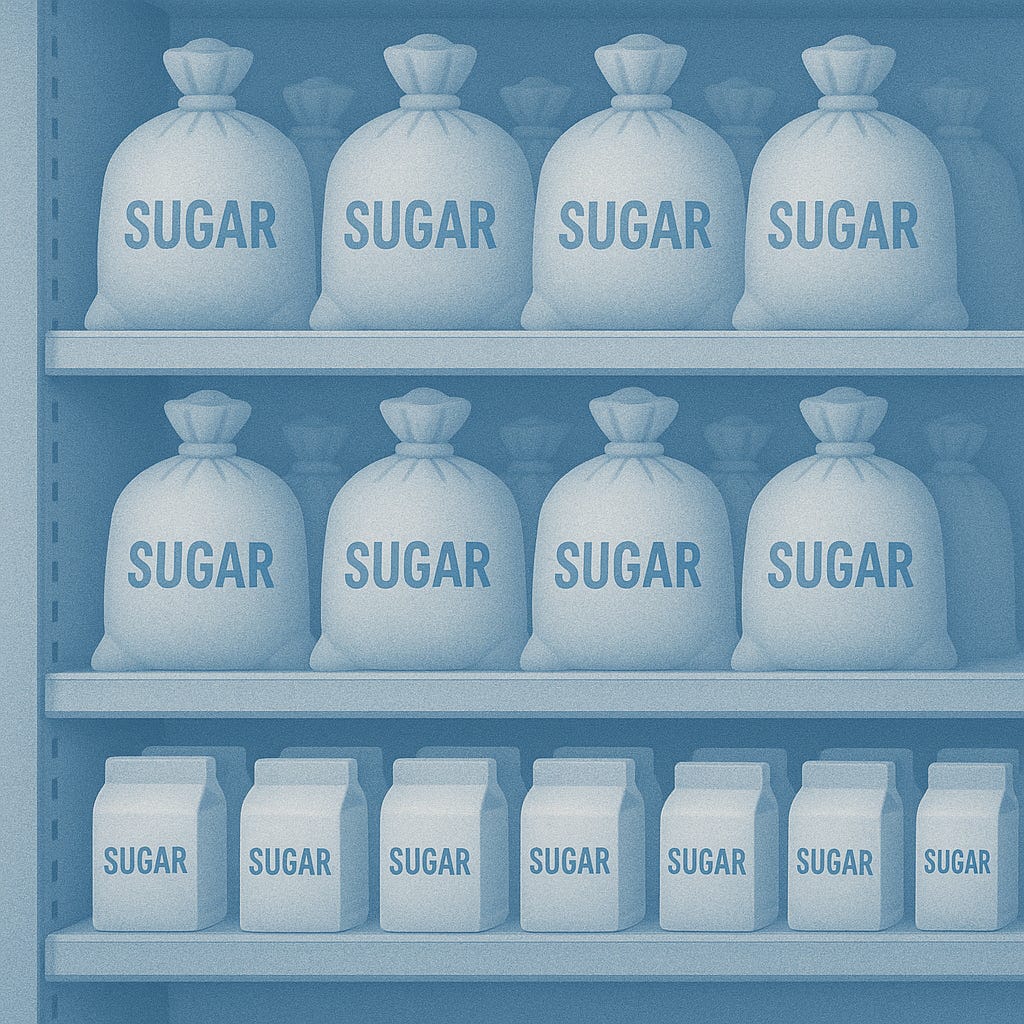Sweet Deals, Bitter Costs
The Hidden Costs of Protectionism in U.S. Sugar Markets
When sugar lobbyist Rob Johansson published a defense of U.S. sugar policy in the Wall Street Journal, he offered a masterclass in protectionist spin. He was responding to Cato Institute scholar Colin Grabow’s clear-eyed explanation of how government barriers inflate sugar prices for American consumers. Johansson invokes food security, labor standards, and patriotic platitudes to justify a policy that exists primarily to enrich a handful of politically connected producers while imposing higher costs on everyone else.
Start with the claim that the U.S. sugar program ensures supply stability. What it actually ensures is artificially high prices, courtesy of government-imposed marketing allotments and tariff and import quotas. These policies deliberately restrict both domestic output and imports. This isn’t a market; it’s a cartel created and policed by the federal government.
The assertion that “wholesale prices have been falling” is meant to distract us from the long-term reality: U.S. sugar prices have held at roughly twice the world price for decades. This forces U.S. food and beverage manufacturers to absorb higher input costs — or pass them on to consumers. This is a textbook case of crony capitalism, in which narrow interests commandeer the government to extract wealth from the broader public.
And the U.S. sugar program doesn’t just make sugar more expensive; it distorts the entire sweetener market, pushing manufacturers toward subsidized corn syrup and other substitutes. It's a perfect example of how protectionist policy creates lamentable downstream consequences — in public health, product quality, and economic efficiency.
As for allegations of “dumping,” it’s true that other countries subsidize sugar, but so does the United States, just more opaquely. The U.S. sugar program is a government-orchestrated wealth transfer that guarantees above-market prices, restricts competition, and shields a favored industry from the discipline of global markets. If foreign subsidies are the concern, then let’s lead by example and eliminate our own, rather than doubling down while hypocritically criticizing other countries for doing what we’ve done for over 90 years.
Johansson’s appeal to “high standards” and “food security” is pure rhetorical sleight of hand. Food security does not require self-sufficiency in every commodity, especially when global supply sources are diverse, competitive, and reliable. American consumers benefit from trade because it disciplines domestic producers, promotes innovation, and keeps prices in check. If U.S. sugar producers can compete, great. If not, they’re not entitled to government-protected profit margins.
In truth, the U.S. sugar program is one of the most blatant examples of how protectionism and corporate welfare masquerading as policies that serve public interest. It guarantees inefficiency, distorts markets, and hurts everyone who doesn’t have a sugar lobbyist on payroll. If the Trump administration is serious about reducing costs, and revitalizing American manufacturing, including soft-drink production, while making America healthier, it can start by tearing out this bitter relic of economic favoritism, not preserving it in amber.


